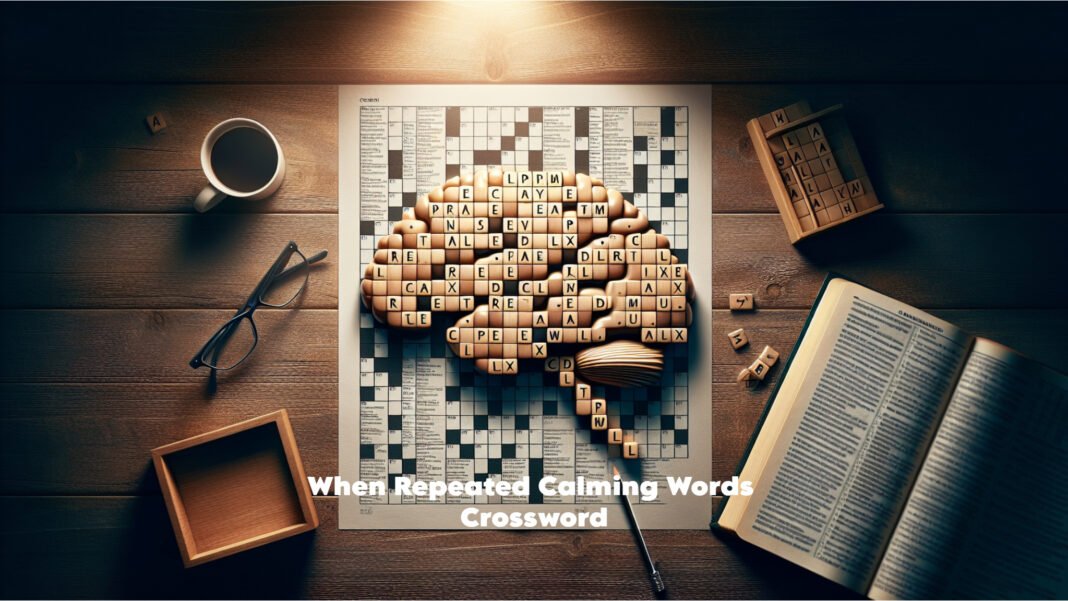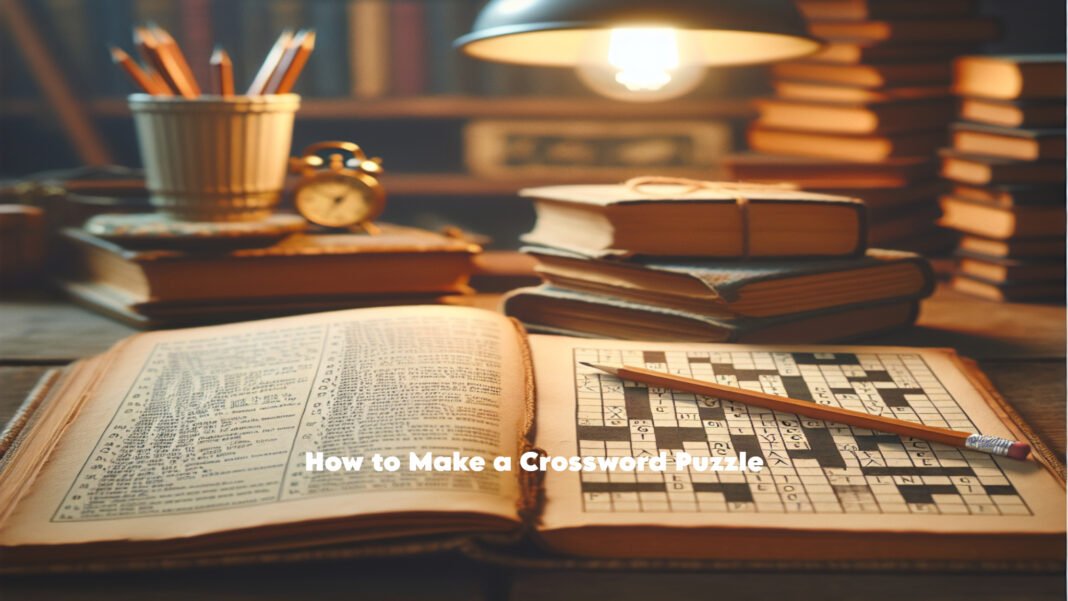Solving the “does what you’re doing crossword” clue is not just an engaging brain teaser; it is also known to be beneficial for one’s mental health and cognition. Crosswords, a staple in many people’s daily routines, are proven to foster muscle memory, relaxation, and enhanced problem-solving abilities. This connection between crossword puzzles and cognitive benefits hints at an intriguing interplay of leisure and mental acuity.
In this article, the focus will center on unraveling the complexities of crossword puzzles, particularly exploring the “does what you’re doing crossword” clue. Readers will be guided through understanding crossword clues, mastering the art of solving them, and a deep dive into improving their own crossword-solving skills. This journey promises a blend of challenge, learning, and perhaps a peek into the rich historical tapestry of crossword puzzles.
Table of Contents
ToggleUnderstanding Crossword Clues
To adeptly navigate the world of crosswords, understanding the nuances of crossword clues is paramount. These clues are the backbone of the puzzle, guiding solvers to the answers through a variety of linguistic and formatting cues. Here, we delve into key aspects of deciphering these clues:
- Clue Patterns and Types:
- Common Patterns: Look for plural or past tense endings, abbreviations, and foreign words. These often offer direct hints towards the answers.
- Wordplay: Cryptic crosswords employ a range of wordplay techniques, including anagrams (“broken”, “amended”), hidden answers (signaled by “some”, “partly”), and double definitions.
- Formatting Hints: Abbreviations, punctuation, and brackets within clues can provide critical insights into solving them.
- Interpreting the Clues:
- Every clue has a definition of the answer and a subsidiary indicator for an alternate path to the solution. The latter can be misleading, pushing solvers to think beyond the obvious.
- Special Indicators: A question mark indicates wordplay or a playful clue, while the presence of specific words hints at the type of wordplay involved, such as sound-alike clues or reversed words.
- Strategies for Solving:
- Start with Fill-in-the-Blanks: These are usually more straightforward and can provide a good foundation.
- Pay Attention to the Clue’s Structure: The answer’s tense, number, and part of speech will match those of the clue.
- Practice with Common Clues: Familiarizing oneself with frequently used abbreviations and clue formats can significantly speed up the solving process.
By integrating these strategies into one’s solving approach, individuals can enhance their proficiency in unraveling the complexities of crossword puzzles, including the intriguing “does what you’re doing crossword” clues.
The Art of Solving Crosswords
The art of solving crosswords involves a strategic approach, blending analytical skills with a dash of creativity. Here are some key strategies to enhance your crossword-solving experience:
- Getting Started:
- Quick Solve and Solution Wizard: Utilize tools like The Crossword Solver for initial guidance. These features can provide quick answers or guide you through possible solutions.
- Fill-in-the-Blank Clues: Begin with these clues as they are straightforward and provide a solid starting point.
- Small Word Answers: Focus on solving 3-5 letter words early on. Their frequency and simplicity make them easier targets.
- Developing Effective Strategies:
- Guessing and Checking: When unsure, make an educated guess and lightly pencil in the answer. Cross-check with intersecting entries to confirm accuracy.
- Taking Breaks: If you find yourself stuck, stepping away can help. Returning with a fresh perspective often makes solutions more apparent.
- Utilizing Resources: Do not hesitate to look up information. Tools like Words By Letter and Clues By Letter can provide the necessary hints without directly giving away the answer.
- Enhancing Skills Over Time:
- Daily Practice: Regularly solving puzzles of varying difficulties builds familiarity with common clues and answer patterns.
- Group Activities: Solving with friends or participating in forums can introduce new strategies and perspectives.
- Learning Opportunities: Viewing each puzzle as a chance to learn new words and facts rather than a test of knowledge encourages a more enjoyable and productive solving experience.
Case Study: ‘Does what you’re doing Crossword’
In exploring the “does what you’re doing crossword” clue, it becomes evident that the answer, “SOLVES,” presents an intriguing insight into the puzzle’s design and the solver’s engagement. This particular clue and its solution were featured in the Daily Commuter Crossword on January 24, 2024, emphasizing its recent relevance and the continuous evolution of crossword puzzles. The Daily Commuter Crossword, accessible through its mobile app on Google Play or the Apple App Store, offers a platform for both seasoned solvers and newcomers to challenge their puzzle-solving skills.
Key Details:
- Answer to the Clue: “SOLVES”
- Date of Appearance: January 24, 2024
- Source: Daily Commuter Crossword
- Accessibility: Mobile app available on Google Play and the Apple App Store
The database analysis reveals that “SOLVES” matches with a 90% to 95% accuracy rate among 40 potential answers, all varying in length and originating from different sources. This diversity in potential answers underscores the complexity and the depth of strategy involved in crafting and solving crossword puzzles. The fact that “SOLVES” itself is a 6-letter word aligns with the clue’s requirement, showcasing the precision in puzzle design.
Moreover, the term “flying,” also a 6-letter word, though unrelated directly to the clue, exemplifies the variety of themes and topics crossword puzzles can encompass. Its definition, “Travel in an airplane,” serves as a reminder of the broad knowledge base and lateral thinking required to excel in solving crosswords. This case study not only highlights the specific “does what you’re doing crossword” clue but also sheds light on the broader aspects of crossword puzzle solving, from the intricacies of clue analysis to the joy of uncovering the correct answers.
Historical Context of Crossword Puzzles
The inception of crossword puzzles traces back to the early 20th century, marking a significant evolution in the realm of word games. This evolution is characterized by several key milestones:
- Early Beginnings and Rapid Spread:
- The first crossword puzzle appeared in The New York World on December 21, 1913, crafted by Arthur Wynne, a British journalist. This puzzle, initially named “Word-Cross,” laid the foundation for what would become a global phenomenon.
- By February 1922, the first British crossword emerged in Pearson’s Magazine, signaling the cross-Atlantic spread of this intriguing pastime.
- Innovation and Complexity:
- The introduction of cryptic crosswords by The Daily Telegraph on July 30, 1925, represented a leap in complexity, offering solvers puzzles that demanded not just a wide vocabulary but also the ability to navigate intricate wordplay.
- Cultural and Historical Impact:
- During World War II, crosswords transcended their status as mere entertainment. They were employed at Bletchley Park for code-breaking tasks, highlighting their potential to engage and sharpen the mind in critical thinking.
- The 1930s saw the creation of Scrabble by architect Alfred Mosher Butts, further cementing the crossword puzzle’s influence on language-based games.
These milestones underscore the rich historical context of crossword puzzles, illustrating their journey from simple entertainment to tools of mental engagement and cultural significance.
Improving Your Crossword Skills
Improving crossword skills entails a structured approach, combining practice with strategic learning. The following strategies are designed to enhance vocabulary mastery and puzzle-solving proficiency:
- Start Simple and Progress Gradually:
- Begin with easier puzzles, notably those in Monday editions, and gradually tackle more challenging ones.
- Utilize fill-in-the-blank clues as starting points due to their straightforward nature.
- Practice and Review:
- Engage in daily practice to build familiarity with common clues and answers.
- After completing a puzzle, review and learn from mistakes to understand clue patterns better.
- Expand Vocabulary and Puzzle Knowledge:
- Regularly learn new words and familiarize yourself with “crosswordese,” common words frequently appearing in puzzles.
- Study the layout of crossword grids and recognize common letter combinations and patterns.
Enhancing Problem-Solving Skills:
- Employ the process of elimination for possible answers and check intersecting words to validate guesses.
- Discuss puzzles with peers and use resources sparingly to encourage independent problem-solving.
These strategies, rooted in research findings, highlight the significant impact of crossword puzzles on vocabulary achievement and cognitive skills, demonstrating their value beyond mere entertainment.
Conclusion
Throughout this exploration of crossword puzzles, from deciphering the nuances of clues to honing solving strategies and delving into the historical evolution, we have journeyed deep into the realm of this intellectually stimulating pastime. Understanding the “does what you’re doing crossword” clue has opened the door to the broader significance and enjoyment of crosswords, highlighting their potential to enhance cognitive abilities, and providing insight into their complex design and historical development. Notably, the strategies and insights discussed serve not only to improve one’s skills but also to appreciate the rich tapestry that crosswords represent in our culture and history.
Engaging with crossword puzzles is more than a leisure activity; it’s a dynamic interaction with language, logic, and history that enriches our mental dexterity and connects us with a century-old tradition of puzzle solvers and creators. The implications of this engagement reach far beyond the moment of solving a puzzle, influencing our approach to problem-solving, our appreciation of wordplay, and our understanding of cultural milestones. As we continue to challenge ourselves with new puzzles, let’s remember the depth of skill, creativity, and history that crosswords encompass, fostering a continued appreciation for this enduring and evolving form of mental exercise.
FAQ: “Does What You’re Doing Crossword”
1. What does “Does What You’re Doing Crossword” refer to?
- “Does What You’re Doing Crossword” is a clue commonly found in crossword puzzles. It hints at the action of solving a crossword puzzle itself.
2. How do I interpret the clue “Does What You’re Doing Crossword”?
- This clue suggests the activity you’re currently engaged in while attempting to solve the crossword puzzle. The answer typically involves a verb related to solving puzzles, such as “SOLVES.”
3. Is “Does What You’re Doing Crossword” a common clue in crossword puzzles?
- Yes, this type of clue is frequently used in crossword puzzles, especially in themed or meta puzzles where the clue directly references the solving activity.
4. What strategies can I use to solve the “Does What You’re Doing Crossword” clue?
- Look for clues within the puzzle itself, such as related words or context that indicate the action of solving. Consider the length of the answer and any letters provided by intersecting words.
5. Can “Does What You’re Doing Crossword” clue have alternative answers?
- While the most common answer is typically “SOLVES,” variations may exist depending on the puzzle’s theme or the puzzle creator’s intent.
6. How does understanding this clue benefit crossword solvers?
- Understanding this clue helps solvers recognize meta-references within puzzles, enhancing their ability to navigate themed or complex crossword constructions.
7. Are there any tips for identifying the “Does What You’re Doing Crossword” clue quickly?
- Pay attention to clues that seem self-referential or meta in nature. These clues often point to the solving activity itself.
8. Can “Does What You’re Doing Crossword” clues vary in difficulty?
- Yes, the difficulty of this clue can vary depending on the puzzle’s context and the level of meta-referencing involved.
9. Are there any related terms or phrases I should be aware of when encountering this clue?
- While “Does What You’re Doing Crossword” is a straightforward clue, be on the lookout for variations or synonyms that may indicate the solving activity.
10. Where can I find examples of puzzles featuring the “Does What You’re Doing Crossword” clue?
- You can find examples of puzzles containing this clue in various crossword puzzle books, online crossword platforms, and puzzle-solving communities.


